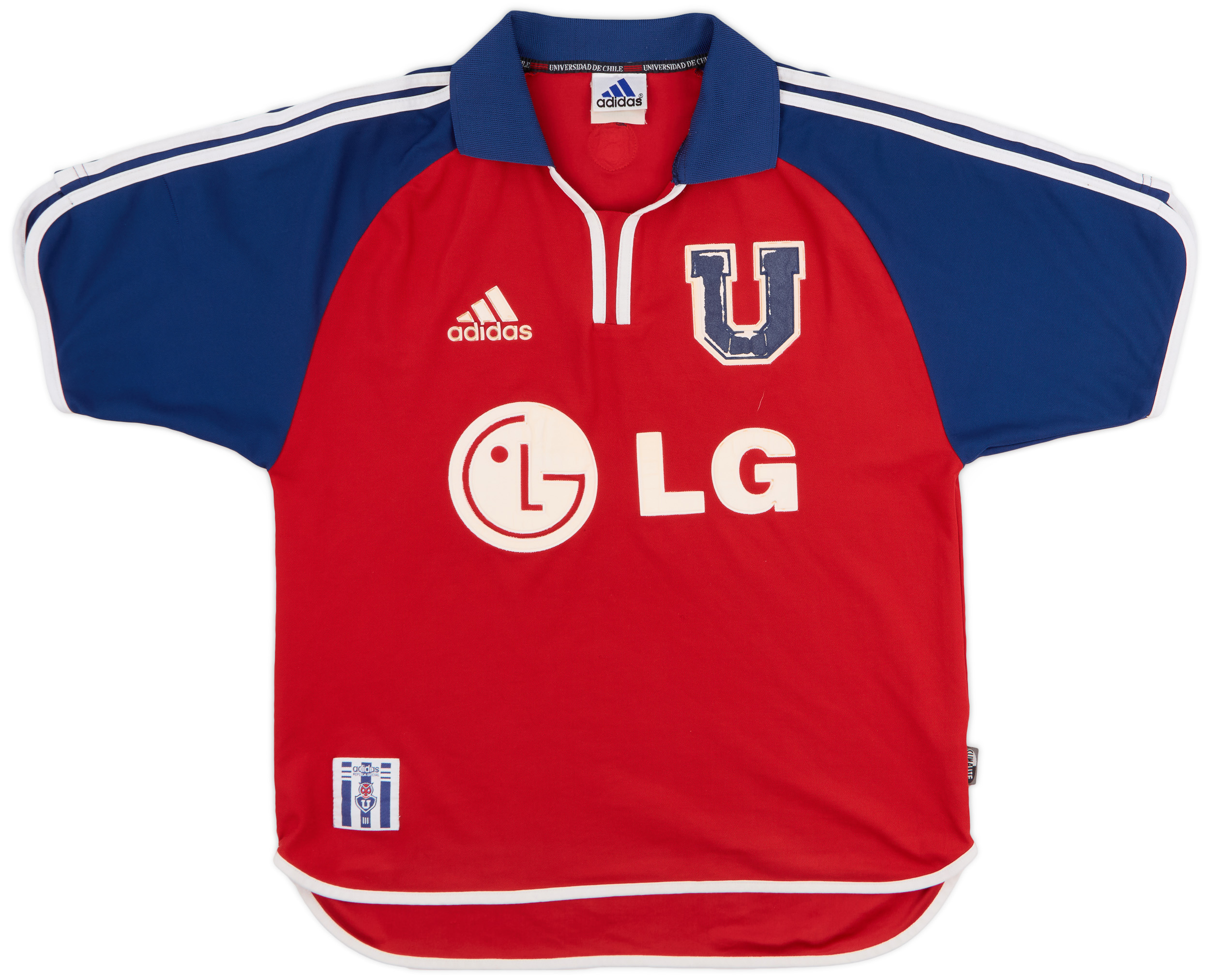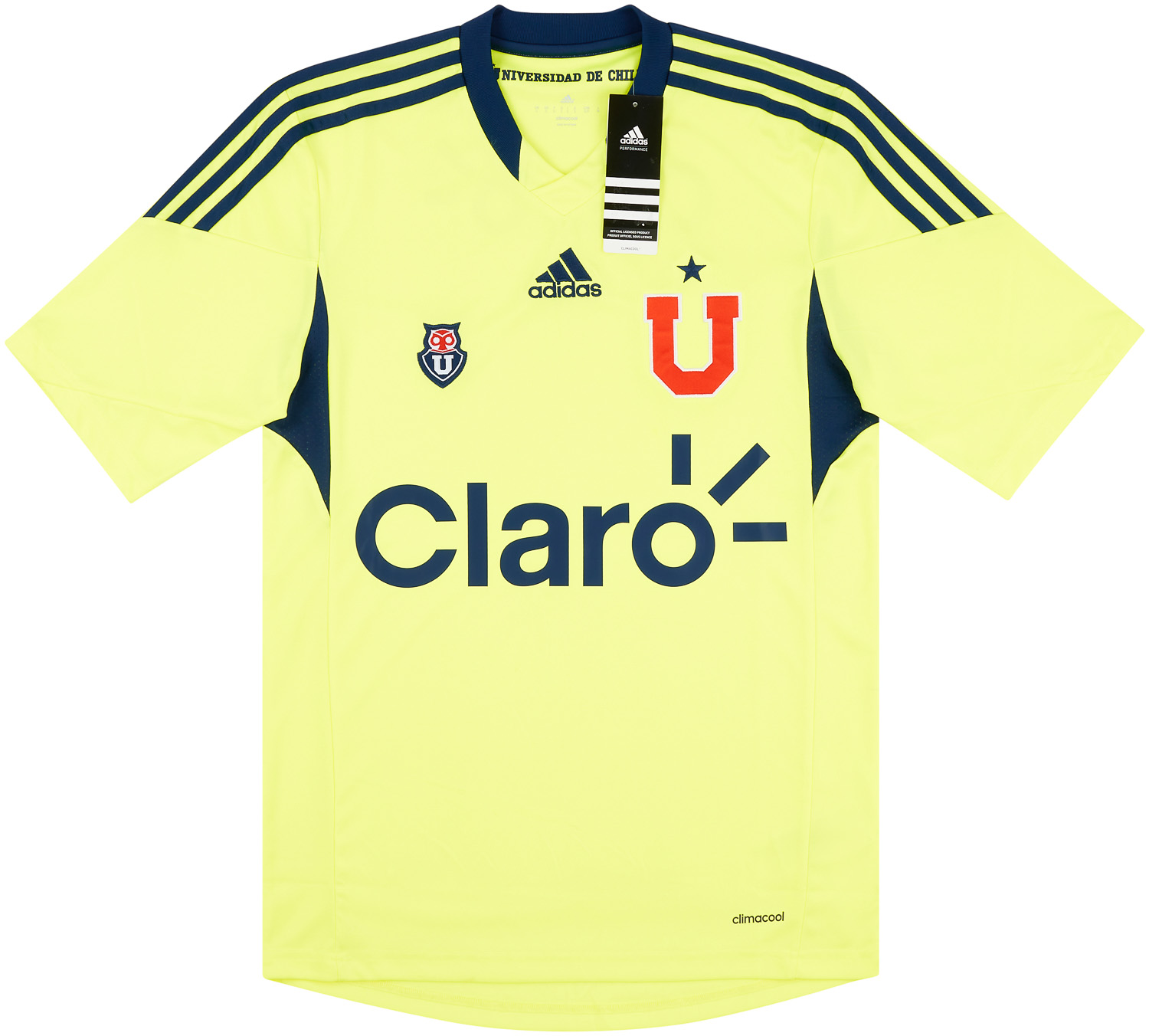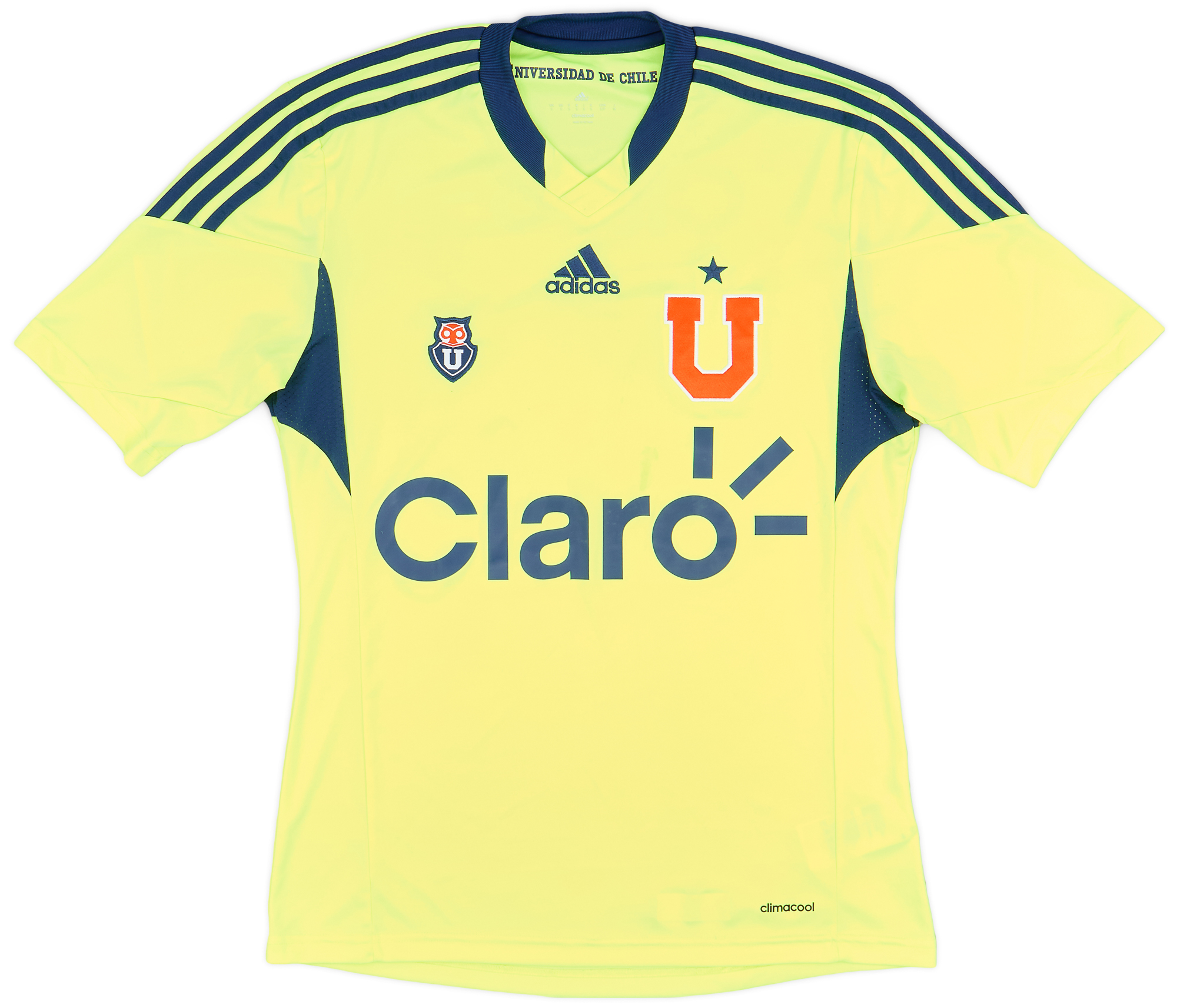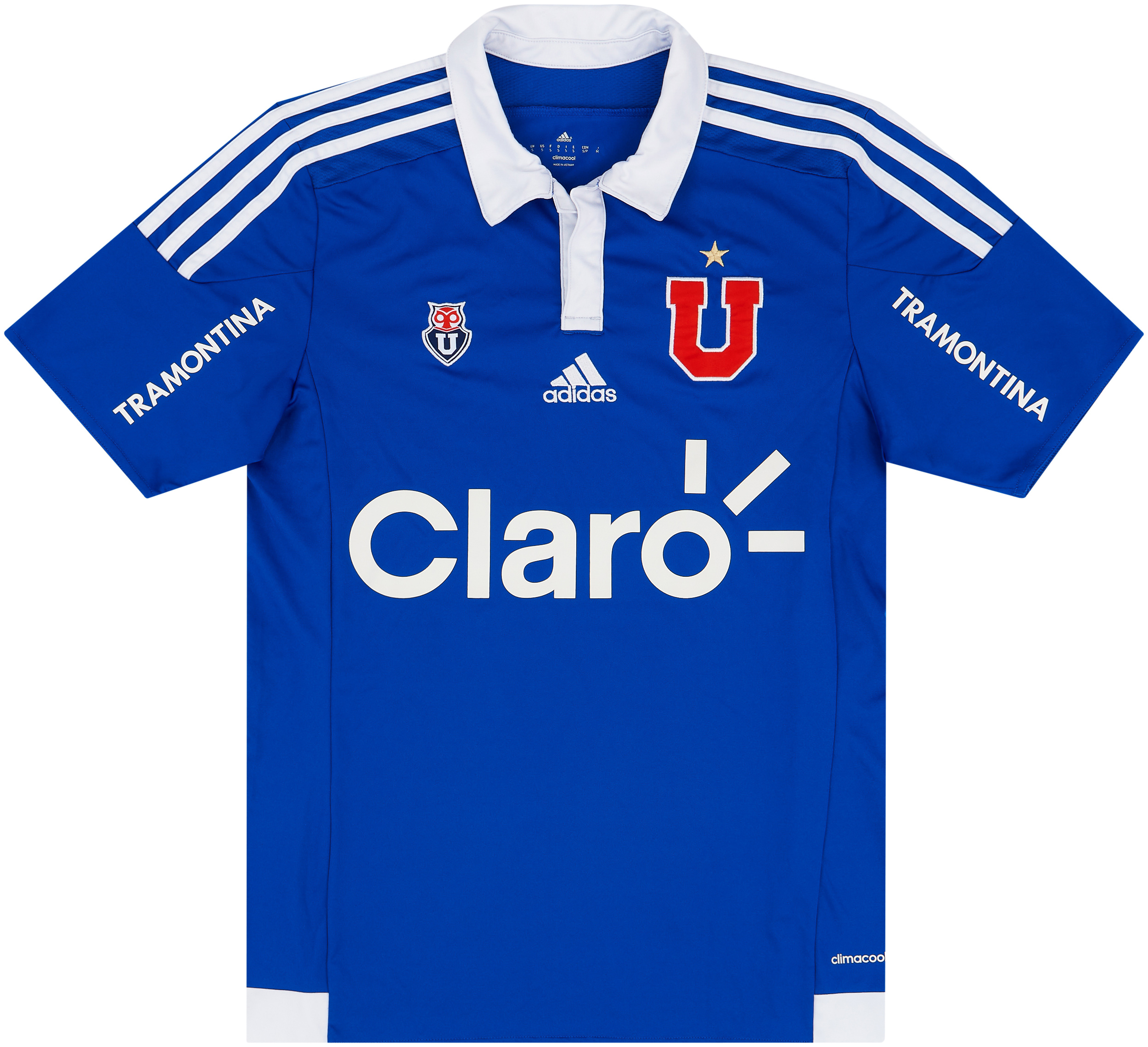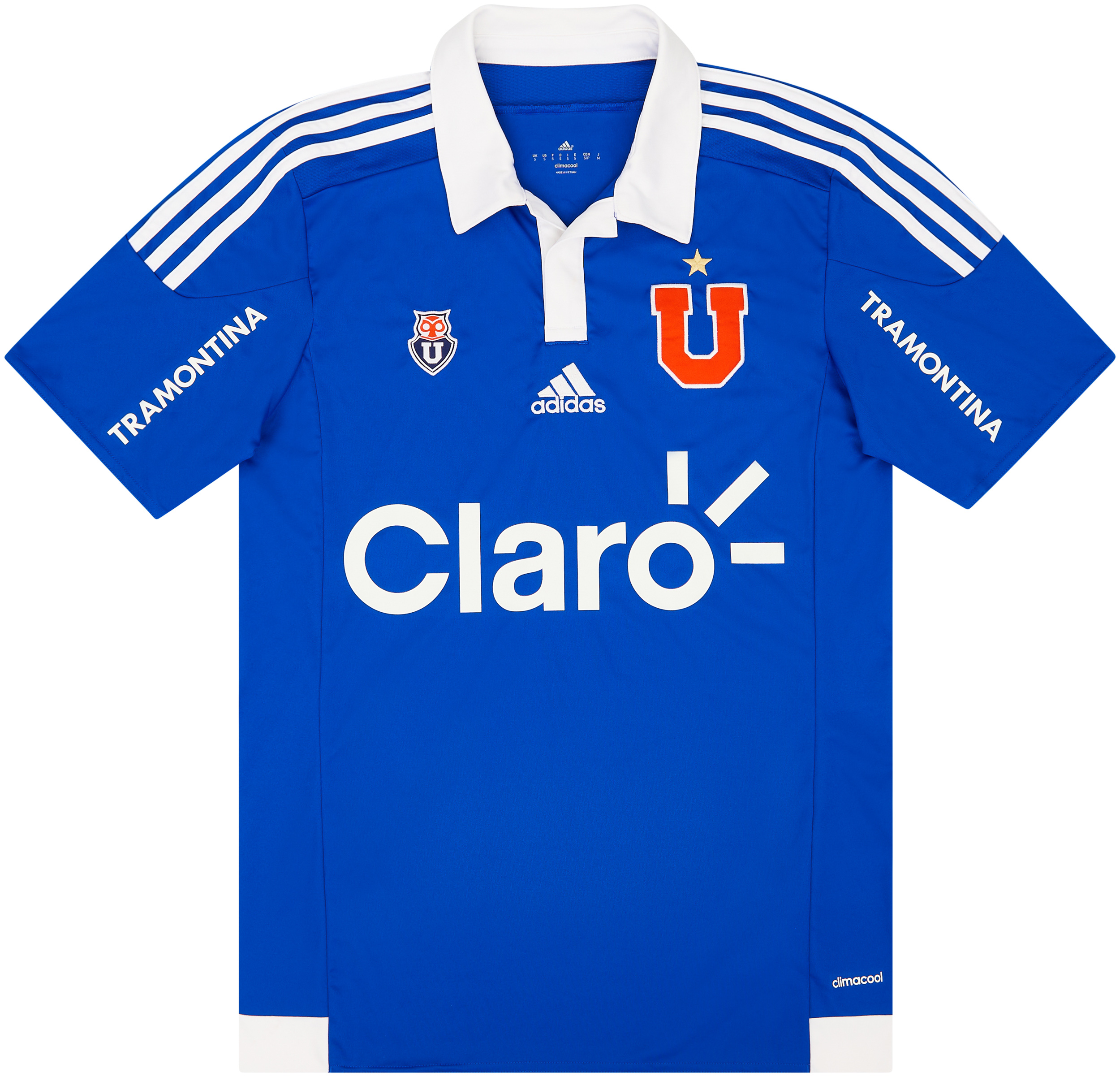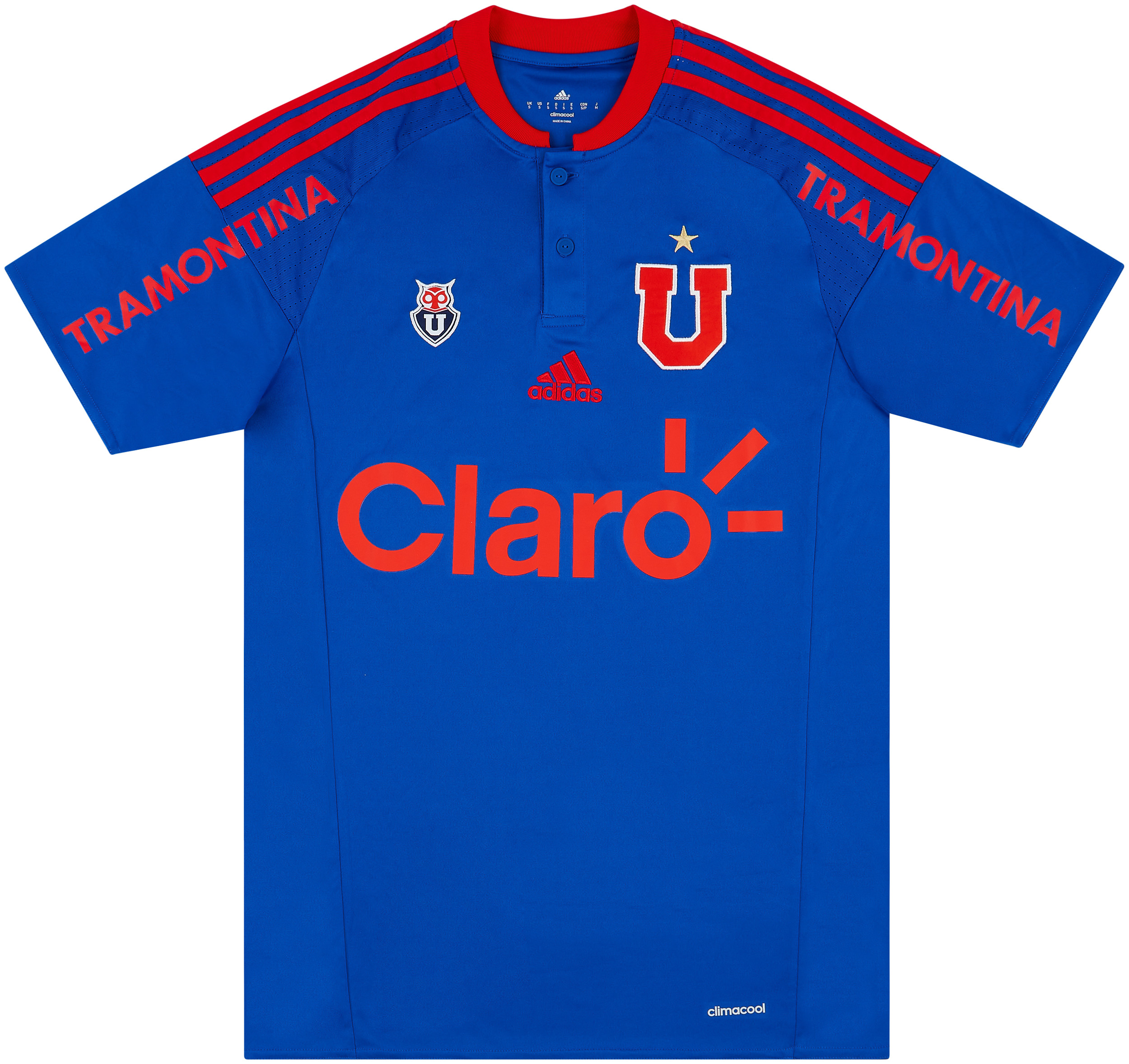Universidad de Chile
Introduction Universidad de Chile, affectionately known as “La U,” has carved an indelible mark in the world of football since its inception. As one of the most storied football clubs in Chile, it represents a unique blend of educational tradition and athletic excellence. Founded in 1927 and based in the dynamic capital city of Santiago, […]
2012-13 Universidad de Chile Player Issue Home Shirt - 8/10 - (L)
94.99£ - ca: €112
2001-02 Universidad de Chile Away Shirt - 5/10 - (M)
90.99£ - ca: €107
2010-11 Universidad de Chile Home Shirt - 7/10 - (M)
82.99£ - ca: €98
2012-13 Universidad de Chile Third Shirt (S)
82.99£ - ca: €98
2016 Universidad de Chile Home L/S Shirt - 8/10 - (S)
82.99£ - ca: €98
2015-16 Universidad de Chile Home Shirt - 9/10 - (S)
70.99£ - ca: €84
2013-14 Universidad de Chile Away Shirt - 8/10 - (S)
70.99£ - ca: €84
2015-16 Universidad de Chile Home Shirt - 8/10 - (S)
70.99£ - ca: €84
2015-16 Universidad de Chile Home Shirt - 9/10 - (S)
70.99£ - ca: €84
2016 Universidad de Chile Home Shirt - 8/10 - (S)
70.99£ - ca: €84
2019-20 Universidad de Chile adidas Track Jacket - 9/10 - (XL)
58.99£ - ca: €70
2020 Universidad de Chile Away Shirt - 6/10 - (L)
58.99£ - ca: €70
2022 Universidad de Chile Third Shirt
57.99£ - ca: €68
2012-13 Universidad de Chile Away Shirt - 7/10 - (M)
53.99£ - ca: €64
2008-09 Universidad de Chile adidas Training Shirt - 8/10 - (XL)
41.99£ - ca: €50
2012-13 Universidad de Chile Home Shirt - 8/10 - (M.Boys)
23.99£ - ca: €28
Introduction
Universidad de Chile, affectionately known as “La U,” has carved an indelible mark in the world of football since its inception. As one of the most storied football clubs in Chile, it represents a unique blend of educational tradition and athletic excellence. Founded in 1927 and based in the dynamic capital city of Santiago, Universidad de Chile has become a symbol of pride for its supporters, known as “La Hinchada,” and has played a pivotal role in shaping the landscape of Chilean football.
Club History
The foundations of Universidad de Chile were laid in the early 20th century when student athletes from different universities came together to establish a club that would reflect their academic and sporting aspirations. Initially formed as a gathering of students, the official club was registered in 1927. From its early years, Universidad de Chile sought to be more than just a football team; it aimed to embody the spirit of unity and excellence among Chilean youth.
In the early decades following its formation, Universidad de Chile became an integral part of the newly established professional Chilean football league. The club quickly rose through the ranks, showcasing its commitment to high-caliber sportsmanship and teamwork. Notably, in 1940, the club secured its first national championship, establishing itself as a contender in Chilean football.
Achievements
Universidad de Chile boasts an impressive array of trophies that highlight its status as one of the leading clubs in South America. As of October 2023, the club has won the Chilean Primera División title 18 times, with their inaugural triumph in 1935. This dominance further extended through the decades, with particularly successful spells in the late 1990s and early 2000s.
In addition to domestic accolades, Universidad de Chile made its mark on the international stage. The club won the prestigious Copa Sudamericana in 2011, marking a watershed moment in its history. Their unprecedented run in the tournament culminated in a dramatic victory over the opposition, which catapulted La U into international footballing prominence. Moreover, the team has also competed in several Copa Libertadores tournaments, showcasing their competitiveness against other top teams in South America.
Significant Players and Matches
Throughout its long history, Universidad de Chile has been home to numerous legendary players who have left lasting legacies. Icons such as Marcelo Salas, who played for the club in the 1990s, and Alexis Sánchez, who began his professional career at La U, are notable for their extraordinary talent and contributions to both club and country. Salas, in particular, was instrumental in the club’s success during his tenure, scoring crucial goals and winning multiple championships.
In terms of memorable matches, the Copa Sudamericana final in 2011 stands out as a historic moment for the club. The victory against the Colombian team, Deportes Tolima, solidified Universidad de Chile’s status in South American football. The intense atmosphere and the display of skill by players exemplified the passion that fans have come to expect from La U.
Cultural Impact
Universidad de Chile is not just a football club; it is a major cultural force in Chile. It has fostered a sense of identity and community among its supporters, transcending the confines of football itself. The club’s colors, blue and white, symbolize unity and pride, and they resonate deeply with the passionate fan base that fills the Estadio Nacional during home games.
The club has also been involved in social initiatives, promoting education and sports as vital components of community development. Universidad de Chile has historically championed social justice and youth programs, leveraging its platform to inspire positive change within society. Its motto, “Por la U, siempre,” reflects the unwavering commitment and loyalty of its supporters to the club and its values.
Conclusion
In conclusion, Universidad de Chile is more than just a successful football club; it is a pillar of Chilean football history. With a rich legacy of achievements, remarkable players, and profound cultural significance, La U continues to inspire generations of fans. As the club moves forward, it remains committed to excellence on and off the pitch, ensuring that its storied past will contribute to a bright future in the world of football.

